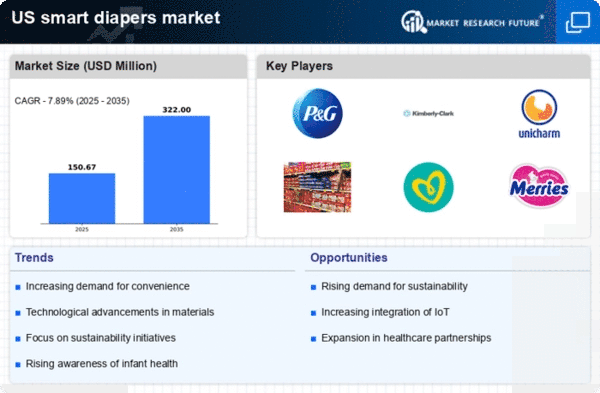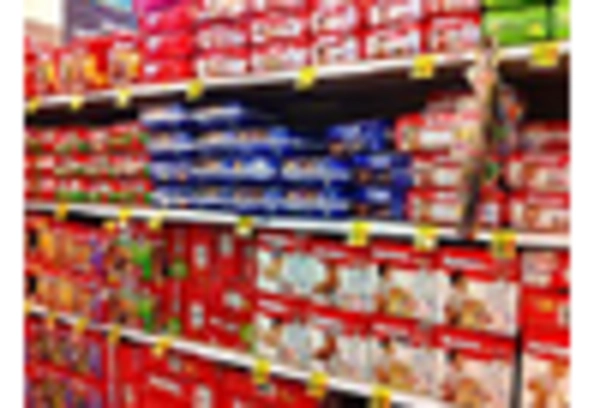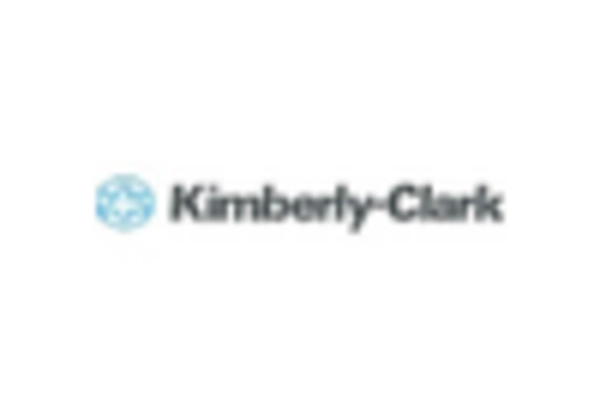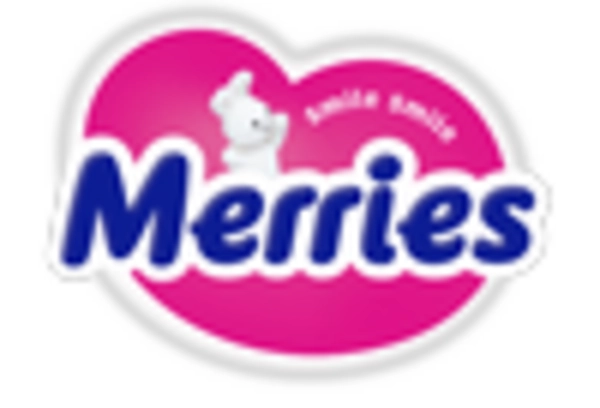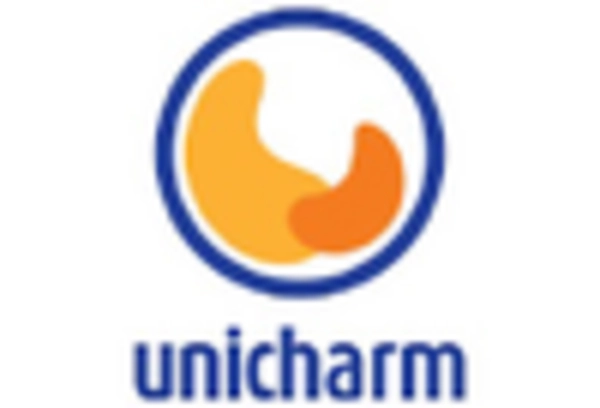Focus on Eco-friendly Materials
The smart diapers market is witnessing a shift towards eco-friendly materials as consumers become more environmentally conscious. Parents are increasingly concerned about the environmental impact of disposable diapers, leading to a demand for sustainable alternatives. Smart diapers made from biodegradable materials or those that utilize less plastic are gaining traction. Market analysis indicates that approximately 50% of consumers are willing to pay a premium for eco-friendly products. This trend not only aligns with the growing sustainability movement but also positions the smart diapers market as a leader in environmentally responsible baby care solutions, appealing to a demographic that values both innovation and sustainability.
Rising Awareness of Infant Health
There is a growing awareness among parents regarding the importance of infant health, which is positively impacting the smart diapers market. Parents are increasingly seeking products that not only provide comfort but also monitor their child's health indicators. Smart diapers equipped with health monitoring features can detect potential issues such as diaper rash or urinary tract infections, allowing for timely intervention. This heightened awareness is reflected in market data, which shows that approximately 60% of parents are willing to invest in smart diaper technology for better health management. Consequently, the smart diapers market is likely to expand as more parents prioritize health monitoring capabilities in their purchasing decisions.
Increased Demand for Convenience Products
The smart diapers market is benefiting from an increased demand for convenience products among modern parents. Busy lifestyles and the need for efficient childcare solutions are driving the adoption of smart diapers that simplify the diaper-changing process. These products not only alert caregivers when a change is necessary but also provide insights into the baby's hydration levels. Market Research Future indicates that around 70% of parents express a preference for products that save time and effort. This trend suggests that the smart diapers market is well-positioned to capture a significant share of the baby care segment, as convenience becomes a primary factor in consumer purchasing behavior.
Technological Advancements in Diaper Design
The smart diapers market is experiencing a surge due to rapid technological advancements in diaper design. Innovations such as moisture sensors and connectivity features are becoming increasingly prevalent. These technologies allow for real-time monitoring of diaper status, which can significantly enhance the convenience for caregivers. The integration of mobile applications with smart diapers enables parents to receive alerts when a change is needed, thus improving hygiene and comfort for infants. As of 2025, the market is projected to grow at a CAGR of approximately 15%, driven by these technological enhancements. This growth indicates a strong consumer interest in products that offer both functionality and ease of use, positioning the smart diapers market as a key player in the baby care industry.
Growing E-commerce and Online Retail Channels
The expansion of e-commerce and online retail channels is significantly influencing the smart diapers market. With the increasing reliance on online shopping, parents are more inclined to purchase smart diapers through digital platforms. This shift is supported by the convenience of home delivery and the ability to compare products easily. As of 2025, online sales are projected to account for over 40% of the total smart diapers market, reflecting a substantial change in consumer purchasing habits. The accessibility of information and reviews online further empowers parents to make informed decisions, thereby driving the growth of the smart diapers market in the digital age.


